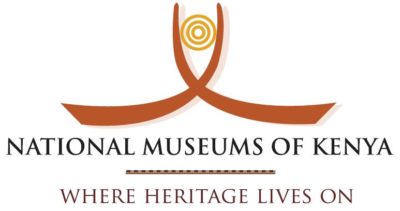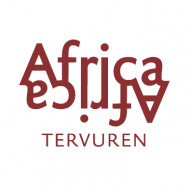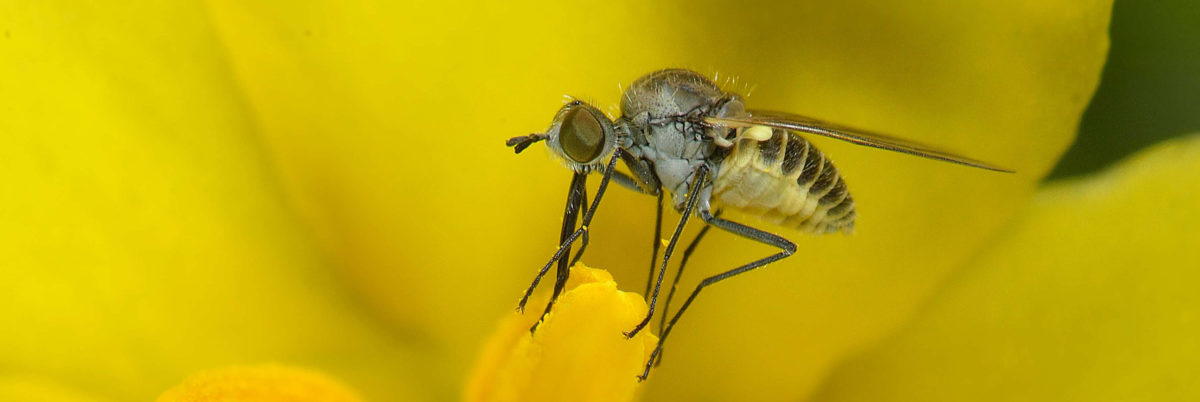SEATTLE, Washington – February 9, 2017 – The JRS Biodiversity Foundation has awarded two grants, totaling $473,200, to increase the accessibility of information on the diversity of wild pollinators in Africa, as part of JRS’ program on Pollinator Biodiversity and Services.
Wild pollinators are declining in abundance and diversity worldwide, just as scientists are beginning to realize the value of the pollination services they provide for free. In Africa, as elsewhere, most food and cash crops rely on insects for pollination, as do wild plants. Data on the diversity, abundance, distribution, and trends of wild pollinators lags behind knowledge about domesticated honeybees. This information gap makes it difficult to prioritize protection for wild insect groups that contribute significantly to agricultural production and maintenance of natural ecosystems, such as flies (Insect order Diptera), and moths and butterflies (Insect order Lepidoptera) to optimize agricultural practices for pollination.
National Museums of Kenya – Assessment of Lepidoptera Pollinator Species Diversity in East Africa, $264,200
A team led by Dr. Esther Kioko at the National Museums of Kenya (NMK) and including Makerere University in Uganda and the National Museum of Tanzania, will help redress the pollinator information gap by collecting and disseminating data on Lepidoptera in critical habitats in East Africa. This project will mobilize the information in the partnership institutions’ collections of these insect pollinators, by digitizing records of their occurrence, and publishing those data to make them available for use by managers and conservationists. Expeditions are also planned to collect new information focusing on three Lepidoptera families: hawkmoths (Sphingidae), skipper butterflies (Hesperiidae), and the dramatic swallowtail butterflies (Papilionidae) in the Eastern Arc Mountains in Kenya and Tanzania, and the Mabira Forest in Uganda.
Royal Museum for Central Africa – The Pollinator Information Network for Sub-Saharan Two-Winged Insects (PIN-DIP), $209,000
With a complementary focus on the group of insects known as true flies (Diptera), this project at the Royal Museum for Central Africa in Belgium (RMCA) will assemble, enhance, and mobilize data on the diversity and distribution of this group, as well as their role in providing pollination services. RMCA plans not only to publish data from their Diptera collections, but will also build a platform for the growth of a multi-disciplinary network of scientists and researchers to collaborate to address knowledge gaps in taxonomy and ecology of pollinating flies in sub-Saharan Africa. Initial collaborating institutions in the network include the Botanic Garden Meise, International Centre of Insect Physiology and Ecology (ICIPE), International Institute of Tropical Agriculture (IITA), Kwazulu-Natal Museum (NMSA), National Museum – Bloemfontein, National Museums of Kenya (NMK), and South African National Biodiversity Institute (SANBI).
JRS believes that decision-makers will fight to preserve biodiversity when they truly understand the essential need for biodiversity and the urgent threat it faces, and when they have greater access to biodiversity data that is high quality, relevant, easily understandable, and timely. Despite their benefits to humans, insects are a group that rarely receives attention in ecological impact assessments, often due to a lack of available data. By improving the availability of information on wild insect pollinators, NMK and RMCA will help close the gap between biodiversity data and conservation decisions.
About the JRS Biodiversity Foundation – The mission of the JRS Biodiversity Foundation is to increase access to and use of information that will lead to greater biodiversity conservation and more sustainable development in sub-Saharan Africa. Founded in 2004, the JRS Biodiversity Foundation works to increase the capacity of the institutions and people who collect, manage, and disseminate biodiversity data and information in sub-Saharan Africa, and to connect this knowledge to stakeholders who make and influence decisions that are crucial to supporting biodiversity. The foundation has awarded more than $13.5M in grants since 2007. Visit us online at http://www.jrsbiodiversity.org
About NMK – National Museums of Kenya (NMK) is a multi-disciplinary institution, established by state mandate in 2006, whose role is to collect, preserve, study, document, and present Kenya’s past and present cultural and natural heritage. This is for the purposes of enhancing knowledge, appreciation, respect and sustainable utilization of these resources for the benefit of Kenya and the world, for now and posterity. Visit online at http://www.museums.or.ke/
About RMCA – The Royal Museum for Central Africa was founded in 1898 and aspires to be a world center of research and knowledge dissemination on past and present societies and natural environments of Central Africa. The core endeavors of RMCA consist of acquiring and managing collections, conducting scientific research, implementing the results of this research, disseminating knowledge, and mounting selected exhibitions of its collections. Visit online at http://www.africamuseum.be.
JRS Contact: Don S. Doering, Executive Director, ddoering@jrsbiodiversity.org
NMK Contact: Esther N. Kioko, Senior Research Scientist and Head of the Zoology Department, ekioko@museums.or.ke
RMCA Contact: Kurt Jordaens, Work Leader, kurt.jordaens@africamuseum.be
# # #

